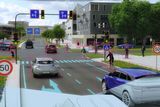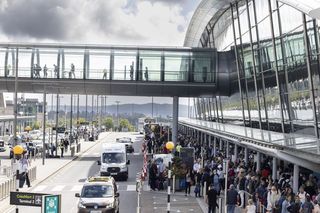Coding competition inspires technology sector to solve humanitarian crisis
(stock photo)
Can an algorithm predict floods? Can an app help emergency responders to act more efficiently? These tech-savvy inventors seem to think so.
Call for Code Global Initiative, a worldwide competition, aims to alleviate damage caused by natural disasters by using technological solutions.
Organisers held a workshop in IBM’s Blanchardstown campus yesterday, with the event being broadcast to IBM offices in Galway and Cork, who also held simultaneous workshops.
The aim of the competition is to “create practical, effective, and high-quality applications based on cloud, data, and artificial intelligence that can have an immediate and lasting impact on humanitarian issues.”
Paddy Fagan, who works in IBM Watson Health, says that the goal of this workshop is to enable people to generate ideas and to seek out potential solutions.
“Call for Code enables people to make a real difference globally. Often people who work in the technology sector can be quite isolated from the rest of the world.”
“This year there is an emphasis on health and wellbeing in the communities affected by natural disasters. When a flood or earthquake occurs, there are great logistical challenges, and sometimes fixed planning can be a constraint. Call for Code can enable people to solve these problems.”
Mr Fagan emphasises that it is not only coders and computer programmers who can take part. “There are designers who create the interface of the apps, there are people from a business background, people who work in the health sector… it’s a real collaborative approach.”
The winner of yesterday’s workshop was an idea for an emergency coordinator support app. On the app, emergency responders as well as members of the public would be able upload vital information onto a map interface about collapsed buildings, flooded areas and dangerous conditions.
Other standout ideas include a push service app, where information about natural disasters is pushed to a smartphone’s screen automatically. This means if a connection is lost, all of the information is on screen up until that point. The app would also have information about what emergency services are still operational.
Another bright idea was an online registration service for volunteer emergency responders. This way, members of the public who are willing to help can be alerted straight away when a natural disaster occurs.
According to Mr Fagan, IBM has the technology to analyse the volunteers’ data and identify skill gaps in the local population. The responders can then be matched with a local training service in order to fill this gap, and this will help communities to be as prepared if a disaster occurs.
Jim O'Keefe, IBM’s External Communications Leader, emphasised the need for security when natural disasters occur. “The solutions to natural disasters need to be secure and resilient. Often someone can exploit a situation further and we need to prevent this.”
“This is a global competition, not just for IBM employees, and an opportunity for people to advance their skills, create teams and rise to the challenge.”
Join the Irish Independent WhatsApp channel
Stay up to date with all the latest news














